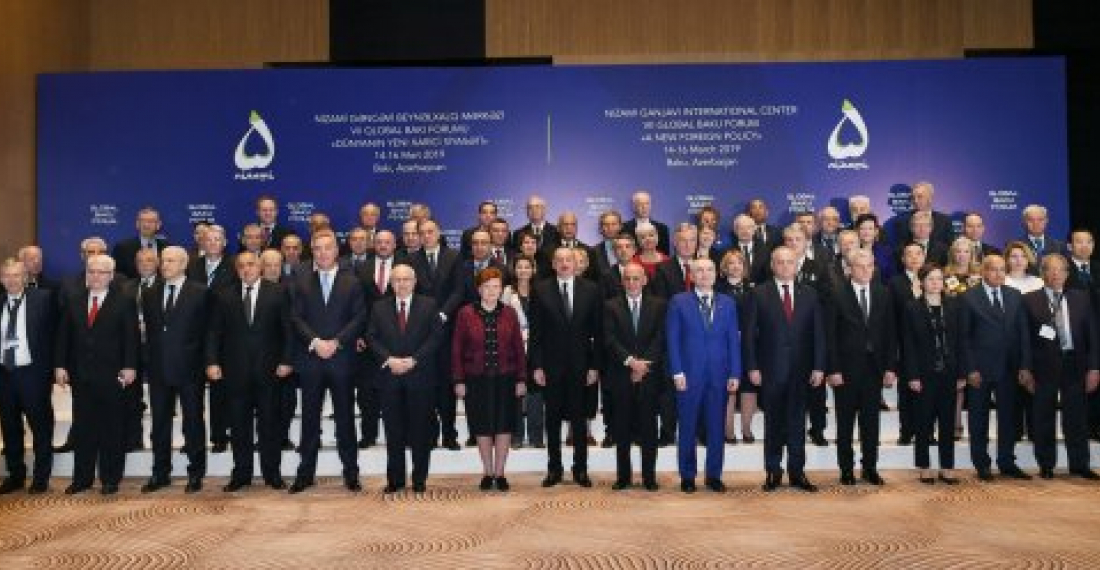Azerbaijan on Thursday (14 March), hosted the VII Baku Global Forum, a gathering of current and past leaders and opinion formers which meets annually to discuss global issues.
Azerbaijani president Ilham Aliyev opened the forum on Thursday morning with a speech in which he spoke about Azerbaijani foreign policy, as well as the Karabakh peace process. "We have established very productive working relationships with our neighbours based on mutual interests and mutual respect. That helps us build more bridges in trade and investment areas and contributes to regional security", the president said.
Speaking about the Nagorno-Karabakh conflict, president Aliyev said:
"the Armenian government has made attempts to change the format of the negotiations, and we still see these attempts. This is completely unacceptable and ineffective. We consider it an attempt to block the negotiation process. We are not alone in thinking this way. We are glad that international organizations share this idea. Earlier, the OSCE Minsk Group co-chairs issued a statement and in fact sent a clear message to Armenia that attempts to change their format of negotiations were unacceptable. A few days before, EU high-ranking officials made the same statement. The negotiation format has developed over many years and any unilateral attempts to change it have been dealt with as an attempt to block the negotiation process, and all responsibility is borne by those who try to do so.
For this reason, the format of the negotiations can not be changed, and the negotiations should be substantive. Azerbaijan is ready to continue this process. We expect that as a result of negotiations, our territorial integrity should be restored. Territorial integrity is the fundamental principle of international law. The balance between territorial integrity and self-determination is clearly explicitly explained in the UN Charter and the Helsinki Final Act. Self-determination should not violate the territorial integrity of countries. Therefore, the conflict should be resolved in accordance with the norms of international law, relevant resolutions of the UN Security Council and within the framework of Azerbaijan's territorial integrity."
source: commonspace.eu
photo: A family photo of the participants of the VII Baku Global Forum held on 14 March 2019 (picture courtesy of the press service of the president of Azerbaijan).






